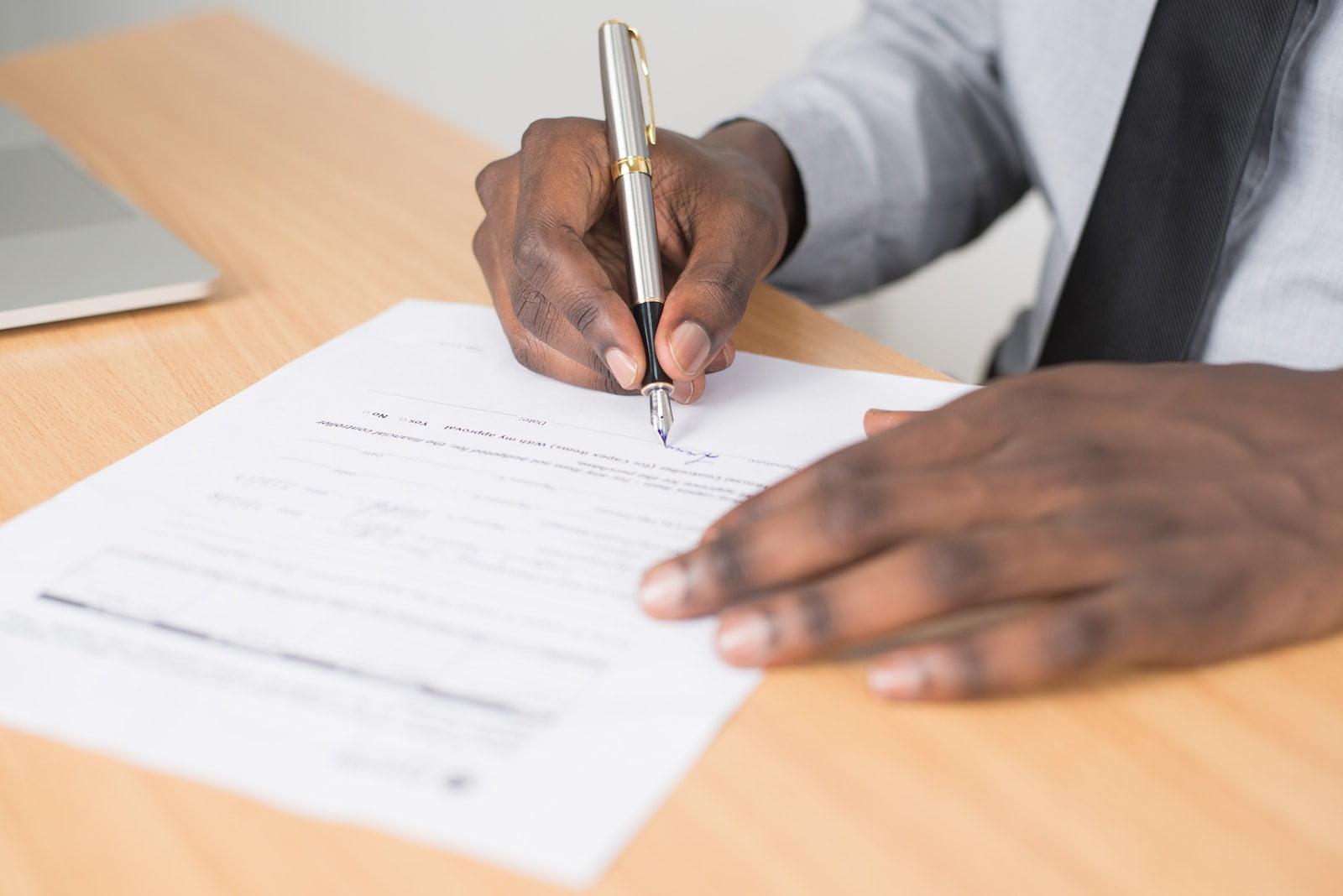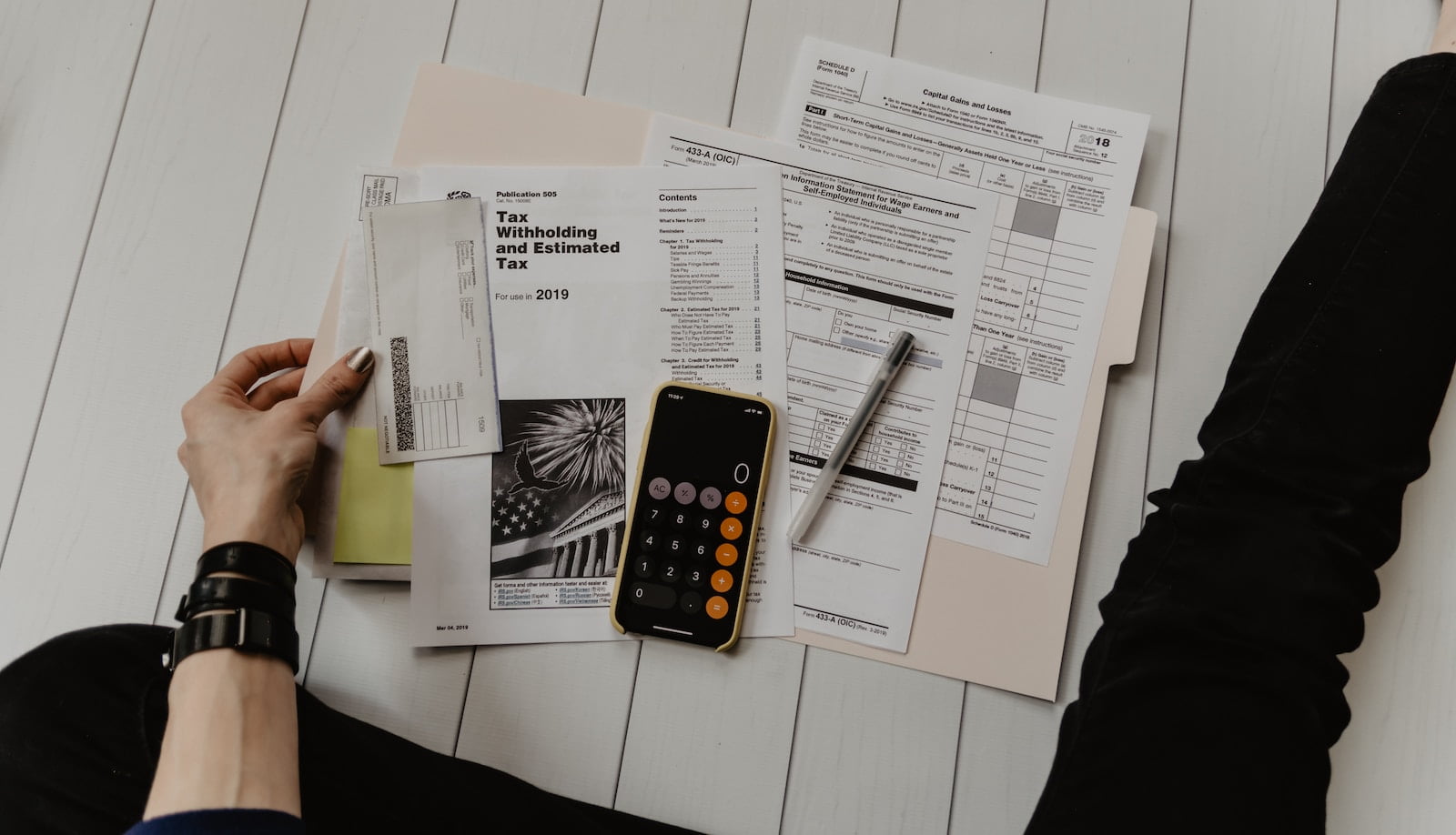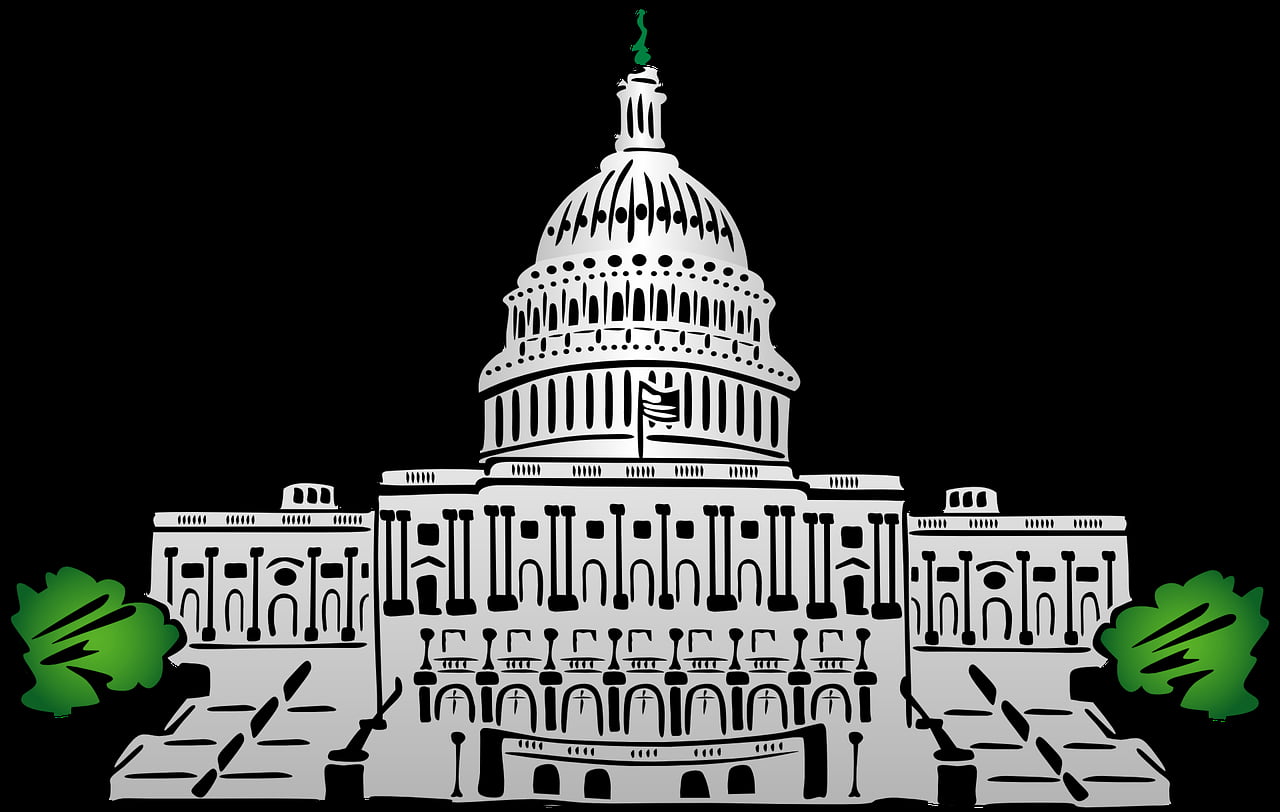Applying for an H1B visa can be a competitive and complex process. As a foreign professional seeking to work in the United States, you want to ensure that your application is not only eligible but stands out among the large pool of applicants. By familiarizing yourself with the key elements and best practices of the H1B application process, you increase your chances of obtaining this highly sought-after visa.
In this article, we will cover the most important aspects of applying for an H1B visa, from understanding eligibility requirements to navigating the application process and key documentation. We’ll also touch on important factors such as the H1B visa cap, exemptions, and fees, as well as providing insights on approval, legal assistance, maintaining your H1B status, and possible obstacles like rejections and request for evidence.
Key Takeaways
- Understand eligibility requirements and the application process for a strong H1B visa application
- Prepare key documentation, be aware of the visa cap and exemptions, and consider seeking legal assistance
- Stay informed on maintaining H1B status, overcoming challenges, and complying with employer requirements
Eligibility Requirements
To successfully apply for an H-1B visa, it’s essential to understand the eligibility requirements. Meeting these requirements is crucial for increasing your chances of approval. Here, we’ll lay out the basic criteria for an H-1B visa application.
First and foremost, you must have a job offer from a U.S. employer. This employer will be your sponsor and will file the petition on your behalf. Keep in mind that not all job offers qualify for an H-1B visa; the position must be in a specialty occupation that typically requires a bachelor’s degree or higher. Examples of qualified positions include architectural occupations, positions in chemistry and physics, accounting, data communications, and more.
Once you have a job offer in this field, the next requirement is to possess the necessary qualifications to perform the job duties. This usually means having a bachelor’s degree or higher in a related field. In some cases, sufficient work experience in the specialty occupation can be considered as an equivalent to having a degree, especially if the job requires highly specialized skills.
In addition to the educational requirements, it’s important to consider the H-1B visa cap. There is an annual limit on the number of H-1B visas issued, with a specific allocation for applicants with advanced degrees. Ensuring you meet all the eligibility requirements will give you a better chance of being selected in the lottery process.
Lastly, your U.S. employer must attest to the fact that they will pay you the prevailing wage for your occupation, and that employing you will not adversely affect the working conditions of other U.S. workers in similar positions. This is typically done through the filing of a Labor Condition Application with the U.S. Department of Labor.
By understanding and meeting these eligibility requirements, you’ll be better equipped to navigate the H-1B application process and increase your chances of a successful outcome.
Understanding the Application Process
Applying for an H1B visa doesn’t have to be a daunting task if you understand the application process. This section will guide you through the necessary steps and provide some helpful tips to increase your chances of success.
First, you need to secure a job offer from a U.S. employer who is willing to sponsor your H1B visa. Your employer will play a crucial role throughout the entire application process. Make sure you communicate openly with them and provide accurate information to avoid any delays or complications.
Next, your employer will need to file a Labor Condition Application (LCA) with the U.S. Department of Labor (DOL). This form certifies that the employer will pay you the prevailing wage for your job position, and that the working conditions meet the required standards. It’s essential to ensure your LCA is approved before proceeding with the rest of the visa application process.
Once the LCA has been approved, your employer will then complete and submit the H1B visa application to the U.S. Citizenship and Immigration Services (USCIS). USCIS has an annual cap for the number of available H1B visas, so it is important to submit your application as soon as the filing period opens.
During this stage, the USCIS will review your application and ensure that you meet specific criteria, including having a bachelor’s degree (or equivalent) and specialized knowledge relevant to your job position. It’s essential to provide all requested documentation, as incomplete or inaccurate information may lead to delays or even denial of your application.
The H1B visa application is subject to a lottery system if the number of applications exceeds the annual cap. It is important to be prepared in case your application is not selected. You may consider alternative visa options or explore other opportunities.
Throughout the application process, maintain open communication with your employer and monitor the status of your case. USCIS provides online tools that allow you to track your application and receive updates. Being proactive and staying organized can help make the H1B visa application process smoother and ultimately lead to a successful outcome.
Remember, understanding the application process is vital to increasing your chances of obtaining an H1B visa. Be diligent, provide accurate information, and be proactive in staying informed about your application status. With patience and determination, you can successfully navigate the H1B visa application process.
Key Documentation and Supporting Documents
When applying for an H-1B visa, it’s essential to gather the required documentation and supporting materials to ensure a successful application. This section will guide you on what documents to prepare and how to strengthen your case.
First and foremost, your employer needs to file a Labor Condition Application (LCA) with the Department of Labor. The LCA establishes the prevailing wage for your position, meaning the minimum salary you should receive based on your job title and location. Ensuring that your wage meets or exceeds the prevailing wage is crucial, as it can impact the outcome of your H-1B application.
Next, gather your personal documentation. This includes your educational transcripts and certificates, proving that you possess the necessary qualifications for your specialty occupation. Furthermore, make sure you have your job offer letter from your employer, detailing your position, salary, and terms of employment.
Compile a comprehensive list of supporting documents for the H-1B visa process. These may consist of your updated resume or CV, reference letters from previous employers, and any relevant professional licenses or certifications. Consider getting your educational credentials evaluated, especially if your degree was not obtained from a U.S. institution. This can help ensure that your qualifications are equivalent to those required by the H-1B visa program.
Keep in mind that both you and your employer need to provide documentation for your application. Your employer must submit Form I-129, the Petition for a Nonimmigrant Worker, along with supporting materials such as company information, evidence of a legitimate business need, and an agreement to pay the previously determined prevailing wage.
To increase your chances of success, consider submitting additional evidence that highlights the specific nature of your specialty occupation. This might include industry awards you’ve received, articles or research papers you’ve published, or any other indication of your expertise in your field.
By thoroughly preparing your documentation and supporting materials, you’ll be well on your way to a successful H-1B visa application.
The H-1B Visa Cap and Exemptions
When applying for an H-1B visa, it’s crucial to understand the cap and its exemptions. The H-1B cap is an annual limit on the number of H-1B visas that the United States Citizenship and Immigration Services (USCIS) can approve. As you embark on this journey, knowing your options will help you strategize and increase your chance of success.
The H-1B visa cap is set at 65,000 each year, with an additional 20,000 allocated for individuals with advanced degrees from U.S. educational institutions. Be aware that the demand for H-1B visas often exceeds the cap. To increase your chances of receiving an H-1B visa, submit your petition as soon as the application window opens on the first business day in April.
Now, let’s discuss H-1B cap exemptions. Certain U.S. employers are not subject to the annual cap. This means they can hire H-1B visa holders without going through the usual lottery process. These exempt employers include non-profit research or government organizations, non-profit organizations associated with higher education institutions, and higher education institutions themselves. Understanding the H-1B cap exemptions can help you find positions that are not subject to the annual cap.
There are also specific quota categories. For example, there is a separate allocation for nationals of Singapore and Chile under the H-1B1 category, which is not counted against the regular H-1B cap.
To qualify for an exemption from the annual cap, check whether your prospective employer falls within the exempt categories or if your specific job role is eligible. Also, explore other visa categories such as the O-1 visa for individuals with extraordinary abilities or the L-1 visa for intra-company transferees.
In summary, familiarize yourself with the H-1B visa cap, quota categories, and exemptions to give yourself the best chance of securing a visa. Apply as early as possible and consider working for employers who are exempt from the cap. Good luck on your journey to working in the United States!
Filing the Petition and Application Fees
When you’re ready to submit your H1B visa petition, it’s crucial to ensure you’ve accurately completed all necessary steps and gathered the required fees. To get started, you’ll need to file the Form I-129, Petition for a Nonimmigrant Worker. This form provides essential information about you, your employer, and the job position you’re aiming to fill.
Keep in mind, there are several fees associated with the H1B visa application process. First and foremost, you’ll need to pay the standard filing fee of $460 for Form I-129. This fee is required for both initial petitions and amendments. Be aware that the filing fee may change in the future, so it’s wise to check the USCIS website for the most current information.
Next, consider the American Competitiveness and Workforce Improvement Act (ACWIA) training fee, which is required for employers sponsoring H-1B visa applicants. The amount may differ based on the size of your company and its workforce. Generally, employers with 1-25 full-time workers must pay a fee of $750. Larger companies might have additional fees associated with their H-1B applications.
There’s also the possibility of optional premium processing. If expeditious processing is desired, you can opt for premium processing by paying an additional $2,500 fee. This ensures that your application will be reviewed by USCIS within 15 calendar days.
When filing your H1B visa petition, it’s essential to double-check all information, forms, and fees for accuracy. Missteps or inaccuracies can lead to delays or even denial of your application. Maintain a confident, clear, and knowledgeable approach to ensure the best chance for success in obtaining your H1B visa. By staying organized, informed, and punctual with your submissions, you’re well on your way to achieving your goal of securing the coveted H1B visa.
H-1B Visa Approval and Legal Assistance
Embarking on the H-1B visa application process may seem daunting, but with the proper guidance and preparation, you can increase your chances of success. One of the first steps you should consider is enlisting the help of a reputable immigration attorney. The expertise of an attorney can make a notable difference in the outcome of your application, as they can help you navigate the complex requirements and ensure your petition is error-free.
When you begin to search for an attorney, focus on finding someone who specializes in immigration law. A knowledgeable immigration attorney will be familiar with the nuances of the H-1B visa process, including the necessary forms, deadlines, and supporting documentation that must be submitted. By working with an attorney, you can maximize your chances of approval while minimizing the chance of delays or rejections due to errors in your application.
As you prepare your H-1B visa petition, make sure to gather all the required documents and ensure they are accurate and up-to-date. This may include educational records, proof of your employment, and a detailed description of the job you will be performing in the United States. Your immigration lawyer will guide you through this process, helping you gather the necessary documentation and organizing it in a manner that best supports your petition.
Being prompt with your application is vital, as the H-1B visa is subject to an annual cap and the demand for these visas often exceeds the supply. As a result, the USCIS typically accepts petitions during a short window each year, often for as few as five days. By having all your materials ready and filing your petition as soon as the application window opens, you can increase your chances of being included in the annual visa lottery.
Lastly, don’t forget to practice for the possible H-1B visa interview. Your immigration attorney will likely help you prepare by going over common interview questions and coaching you on how to present your eligibility to the consular officer. Being well-prepared for the interview can make a huge difference in your chances of approval, as it demonstrates your dedication and commitment to the process.
In summary, when it comes to obtaining H-1B visa approval, enlisting the help of a skilled immigration attorney and being proactive in your preparation can significantly improve your chances of success. By being thorough with your documentation, prompt with your application, and well-prepared for the interview, you’ll be well on your way to successfully achieving your H-1B visa and working in the United States.
Overcoming Rejections and Request for Evidence
Facing a rejection or a Request for Evidence (RFE) during your H1B visa application process can be daunting. However, by taking a proactive approach and following these tips, you can increase your chances of successfully overcoming these obstacles.
Firstly, don’t panic when you receive an RFE. It is a common part of the application process, and it does not mean your petition has been denied. Instead, it simply means the U.S. Citizenship and Immigration Services (USCIS) needs more information or clarification before making a decision. Carefully review the RFE notice and make a list of all requested documents and evidence. You will want to provide a thorough and convincing response to increase your chances of success.
When responding to the RFE, ensure you submit all documents in a timely manner. It is crucial to provide the requested evidence. Take the time to organize your response packet, including a clear and concise cover letter outlining your submitted documents. Make sure you follow any formatting requirements and address the specific concerns raised by the USCIS.
In case of a rejection, it’s important to analyze the reasons behind it. USCIS generally provides an explanation for the denial, so read it carefully and assess any shortcomings in your application. Identify the areas where you, as the beneficiary, need to provide more supporting evidence or documentation. You may consider seeking professional advice from an immigration attorney or an experienced consultant to help you prepare a new petition that addresses the issues raised in the denial.
Always keep track of the deadlines for submission. Remember, you have a limited time to respond to an RFE, typically 30 to 90 days from the date of the notice. Set reminders and allocate sufficient time to gather all required documents before the deadline. Missing the deadline for RFE responses or submitting incomplete information could result in a denial, so it’s crucial to stay organized and timely in your response.
In summary, overcoming rejections and requests for evidence in the H1B visa application process involves being proactive, thorough, and timely. By addressing the concerns raised by the USCIS and providing all required supporting documents, you can increase your chances of achieving a successful outcome and obtaining your H1B visa.
Maintaining H-1B Status and Employer Compliance
Navigating the H-1B visa process requires diligence and attention to detail. As an H-1B visa holder, maintaining your status and ensuring your employer’s compliance with regulations is crucial. Here are some key steps you can take to keep everything on track:
First and foremost, it’s essential to keep your immigration documents updated. Ensure your passport remains valid for at least six months into the future at all times. Regularly check your I-94 admissions record or I-797 approval notice to confirm your H-1B status expiration date is in the future. If you travel abroad, always verify your I-94 record upon return.
When it comes to employment, you should only work for the employer that petitioned for your H-1B visa. Deviating from this may jeopardize your status. Additionally, it’s important to remain aware of any changes in your job duties, work location, or employer’s business. Notify the U.S. Department of Labor and USCIS of any significant alterations to your employment situation.
Staying in touch with your employer is crucial for maintaining valid H-1B status. Notify them of any changes in your personal information, such as your address, as this information is necessary for employer compliance. Most organizations have internal systems for updating employee information, so take advantage of those resources.
Keep track of any state-specific requirements that may impact your H-1B status. Different states often have varying regulations related to employment and taxation. Familiarize yourself with these requirements to prevent any issues down the line.
Your employer also plays a significant role in maintaining your H-1B status. They must abide by the U.S. Department of Labor regulations, which include paying the prevailing wage, offering similar working conditions to those of U.S. workers, and maintaining accurate records. Employer non-compliance can result in fines and penalties, ultimately affecting your H-1B status.
Lastly, be prepared for occasional site visits by USCIS. These visits aim to verify your wages, job duties, and work locations, ensuring that both you and your employer remain compliant with H-1B visa requirements.
By actively following these guidelines and working closely with your employer, you can better maintain your H-1B status and contribute to a successful H-1B visa experience.
Frequently Asked Questions
What documents are required for an H1B visa interview?
Before attending your H1B visa interview, make sure you have all the required documents. Generally, these include your passport, DS-160 confirmation page, H1B visa application fee payment receipt, appointment confirmation letter, and your employer’s approved Form I-797. Additionally, you should bring supporting documents such as your job offer letter, educational certificates, and work experience letters. Always check the specific requirements on your Consulate website.
How can I find a suitable H1B visa sponsor?
Finding a suitable H1B visa sponsor can be challenging. Start by researching companies that have a history of sponsoring H1B visas and consider targeting these organizations in your job search. Networking, both online and offline, can also help you connect with professionals who could potentially refer you to potential sponsors. Utilize online job portals and websites dedicated to H1B visa job listings to enhance your search.
What is the success rate of H1B visa applications?
The success rate for H1B visa applications can vary each year based on demand, the number of applications, and the annual visa cap. While there is no definite number for success rates, it is crucial to note that the H1B visa program is highly competitive. Applicants should aim to submit a well-prepared petition to increase their chances of approval.
What are the educational and experience requirements for H1B visa?
To qualify for an H1B visa, you must have at least a Bachelor’s degree or higher in your specialty occupation, an equivalent foreign degree, or have experience through previously held positions that are equivalent to the completion of such a degree. Your prospective employer files your H1B petition on your behalf, and they must demonstrate that your skills and expertise are necessary for the job.
How does the H1B visa lottery process work?
The H1B visa lottery is a random selection process that takes place each year to allocate the available visas among the applicants. The lottery system is used due to the high demand for H1B visas, which often exceeds the annual cap. Once your employer has submitted your H1B petition, your application will be entered into the lottery pool. If your application is selected, you will proceed to the next steps of the approval process.
Is it possible to file an H1B visa application without an attorney?
Yes, it is possible to file an H1B visa application without an attorney. However, working with an experienced immigration attorney can help you navigate the complex process more efficiently. An attorney can help ensure that your petition is well-prepared and contains accurate information to increase your chances of success. If you or your employer decide to proceed without an attorney, be sure to meticulously research the H1B visa process to avoid any potential issues or delays.












